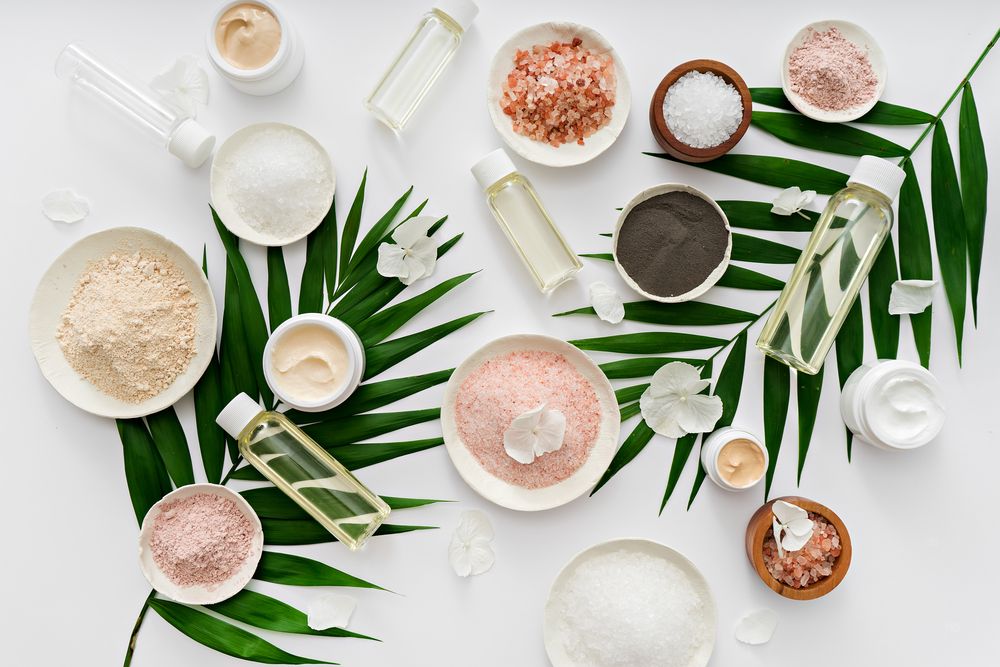The Rise of Clean Beauty and Conscious Consumerism
The beauty industry is undergoing a transformation, with consumers becoming more mindful of what goes into their skincare and cosmetics. Clean beauty is no longer a niche concept but a powerful movement, driven by increased awareness of ingredient safety, sustainability, and ethical production.
With 68% of consumers actively seeking skincare products made with clean ingredients and a growing preference for eco-friendly packaging, the shift towards conscious consumerism is undeniable retail trend.
Why Clean Beauty Matters
For years, mainstream beauty products have contained synthetic chemicals, many of which raise health and environmental concerns. Research has linked certain ingredients in hair dyes to breast and uterine cancer, while some anti-ageing creams have been found to contain harmful levels of mercury. This growing awareness has led consumers to scrutinise ingredient labels, pushing brands towards greater transparency and safer formulations.
But clean beauty isn’t just about avoiding harmful chemicals; it’s also about embracing naturally derived, sustainably sourced ingredients that nourish the skin without causing harm. This has led to the rise of brands that prioritise botanical extracts, plant-based actives, and ethical sourcing, creating products that align with the values of the modern, conscious consumer.
The Demand for Ethical and Sustainable Packaging
Sustainability is now at the forefront of beauty innovations. In the UK, 9% of all beauty and personal care launches in 2022 featured refillable packaging claims, reflecting the growing demand for environmentally responsible alternatives. Consumers are seeking products that not only benefit their skin but also minimise waste. Refillable packaging, biodegradable containers, and minimalistic, plastic-free designs are gaining traction, with brands responding by developing eco-conscious solutions that align with these expectations.
The Hidden Dangers in Hair Extensions and Wigs
For Black women, hair extensions and synthetic braiding hair are staple beauty products, yet recent studies have uncovered alarming findings regarding their safety. Consumer Reports tested 10 popular synthetic braiding hair products and discovered carcinogens in every sample, while nine out of ten contained lead. Other volatile organic compounds (VOCs), including acetone, were also detected in all products. These revelations have sparked discussions about the importance of safer alternatives in the haircare industry.
Fortunately, brands like ‘Kynd’ are stepping up to the challenge. This plant-based braiding hair brand recently won the German Eco Design Award 2024, Germany’s highest state award for ecological design. Kynd’s success highlights the growing demand for innovative, non-toxic alternatives that cater to diverse beauty needs without compromising health or sustainability.

The Power of Education and Information
One of the driving forces behind the clean beauty movement is the rise of online research and education. Consumers are turning to blogs, YouTube channels, and skincare experts to gain deeper insights into ingredient safety and product effectiveness. Platforms such as Think Dirty, EWG Skin Deep, and Yuka empower users to scan product barcodes and instantly receive information about ingredient safety, allowing them to make more informed purchasing decisions.
Moreover, transparency is now a key differentiator for brands. Companies that disclose ingredient sourcing, formulation processes, and third-party testing build trust with their consumers. Brands that embrace openness and honesty are winning loyal customers who value ethical and informed beauty choices.
How Brands Are Adapting to Consumer Demands
As clean beauty becomes the standard, both indie and mainstream brands are racing to meet consumer expectations. Several brands have emerged as pioneers in the clean beauty space, offering products that prioritise safe, high-quality ingredients. Brands like Drunk Elephant, Tata Harper, and Fenty Beauty are gaining a loyal following by formulating products free from harmful chemicals while maintaining high performance.
Meanwhile, traditional beauty giants are also taking note. Many have started reformulating existing products, removing controversial ingredients, and investing in sustainable packaging. This shift is not just about appeasing a trend; it’s about adapting to a new reality where consumers demand safer, cleaner alternatives.
The Role of Certifications in Clean Beauty
With the rise of clean beauty, certifications play a crucial role in helping consumers navigate product choices. Labels such as Certified Organic, Cruelty-Free, Non-Toxic, and Vegan provide reassurance that products meet strict standards. These certifications act as a benchmark for transparency and quality, making it easier for consumers to identify genuinely clean and ethical beauty brands.
What's Next for Clean Beauty?
The clean beauty movement shows no signs of slowing down. Sales in this sector climbed 33% in the first six months of 2021, reaching a staggering $1.6 billion. With consumers increasingly prioritising ingredient safety, sustainability, and ethical practices, brands must continue to innovate and uphold high standards.
As conscious consumerism grows, we can expect to see more brands embracing clean beauty principles, leading to a future where safe, transparent, and eco-friendly cosmetics are the norm. The movement is not just about beauty—it’s about empowerment, knowledge, and making choices that benefit both individuals and the planet.
Are you ready to embrace the clean beauty revolution?
Share Your Retail Insights with Our Community!
Are you a retailer with valuable experiences, trends, or tips to share? We’d love to feature your expertise on our blog!
Whether you have insights on customer service, visual merchandising, e-commerce strategies, or anything in between, our platform is the perfect place to connect with fellow retailers and industry professionals.
Guest contributing is a fantastic way to showcase your knowledge, grow your brand’s visibility, and engage with a wider audience.
Interested? Get in touch with us today.

)
)
)
)
)
)
)
)
)
)
)
)
)
)
)
)
)
)
)
)
)
)
)
)
)
)
)